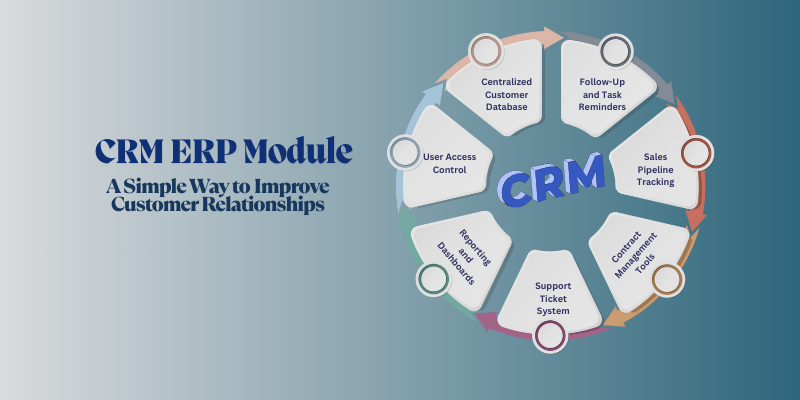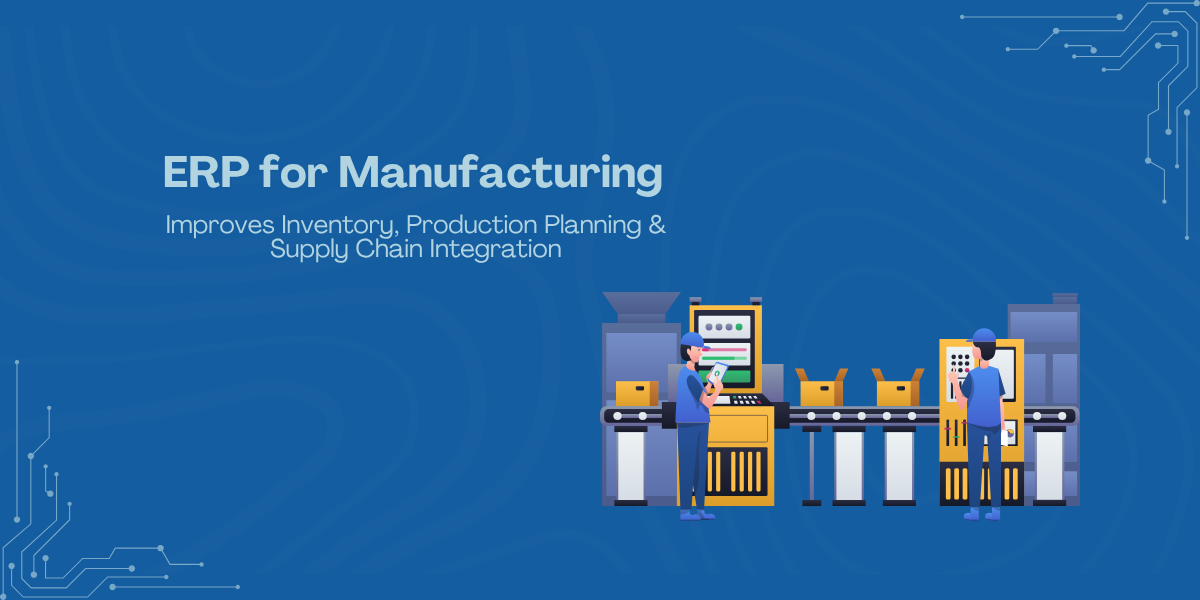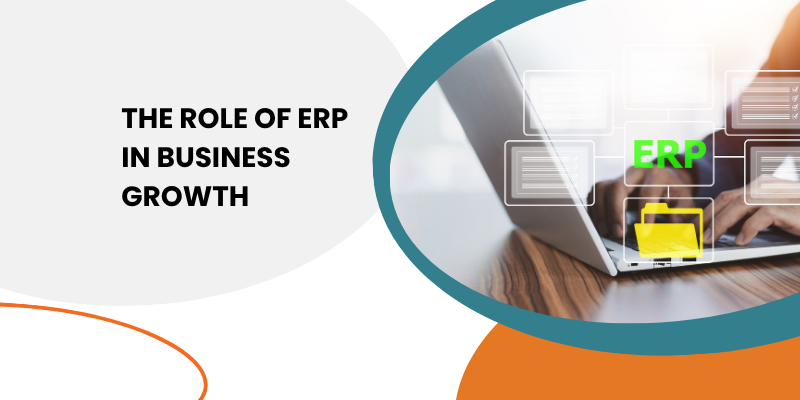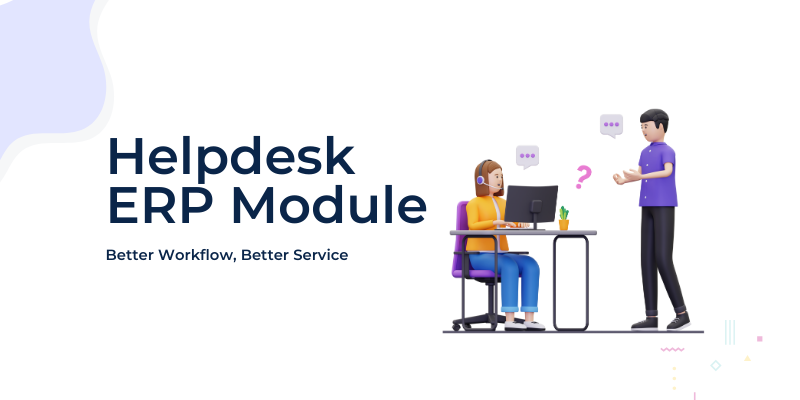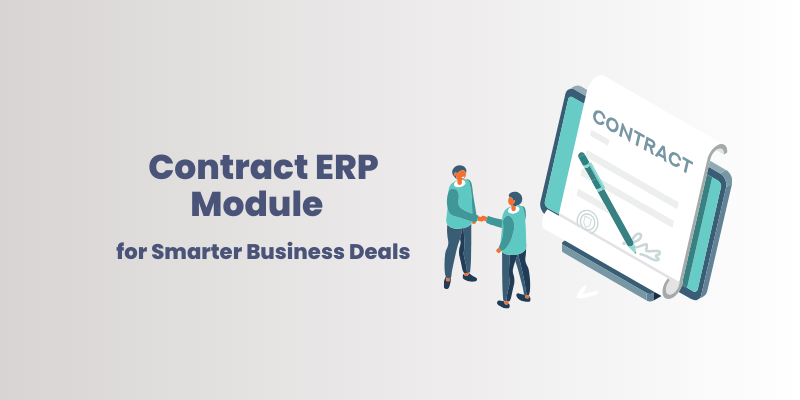Are you struggling to keep track of your customer details, follow-ups, and interactions?
Many businesses today face this problem. As customer lists grow, it becomes harder to manage contacts, sales, and support without a system. This is where a CRM module can make a big difference. It helps organize customer information, improves communication, and keeps every detail in one place. With a good CRM module, businesses can focus more on building strong relationships with their customers instead of worrying about scattered data.
A CRM module supports better control over how customers are managed. From collecting and storing their information to helping teams follow up on time, it brings everything together in one easy-to-use system. It also reduces manual work, improves accuracy, and gives better service to clients ,helping both the business and the customers.
Manages and Automates the Lifecycle of Contracts
One of the important parts of customer handling is contract management. A CRM module manages and automates all stages of a contract—from start to finish. This includes creating the contract, reviewing it, getting approvals, signing, renewal alerts, and checking if both sides are following the terms.
How it works:
- Contract Creation:
Ready-to-use templates make it quick to create contracts that match your business needs. - Tracking Negotiations:
The system keeps a full record of every version and change, so nothing gets missed or lost. - Approval Process:
Team members are notified when their review or approval is needed. - Reminders for Renewal:
Alerts are sent before a contract expires so it can be reviewed or renewed in time. - Compliance Check:
You can check easily if the agreed rules are being followed because everything is stored in one place.
This reduces confusion, saves time, and builds a more professional relationship with customers.
Features of a CRM Module
Here are the main features of a CRM module that help in managing customer information and improving work processes:
Centralized Customer Database
This feature keeps all customer information in one place—like names, phone numbers, emails, past orders, and old messages. It helps your team find details quickly without searching in different files or emails. This saves time and keeps everything organized.
Follow-Up and Task Reminders
The system lets you set reminders for calls, meetings, or emails with customers. It reminds your team at the right time so that no follow-up is missed. This helps build better customer communication and shows that you care.
Sales Pipeline Tracking
It tracks every customer’s journey—from the first contact to closing the deal. This helps the sales team see which customer is at which stage, so they know the next step to take. It makes it easier to manage deals and improve sales performance.
Contract Management Tools
You can create, edit, and keep track of contracts directly in the system. This keeps all your contracts safe and in one place. You also get reminders when a contract needs renewal or when something needs attention.
Support Ticket System
If a customer has an issue or complaint, it can be logged as a ticket in the CRM. The ticket can be assigned to a team member to solve it. This helps your team respond quickly and shows customers that their problems are being handled properly.
Reporting and Dashboards
The CRM creates easy-to-understand reports and charts that show sales, follow-ups, and customer activity. Managers can check team performance and business progress in one view. It helps in making better decisions and tracking goals.
User Access Control
You can choose who can see or edit different parts of customer data. Only the right team members can access sensitive information. This keeps customer data safe and limits mistakes or misuse.
Integration with Other Modules
The CRM can work together with other systems like billing, inventory, and sales. This makes sure everything is connected, and you don’t need to enter the same data again and again. It saves time and reduces errors.
Benefits of Using a CRM Module
These are the most useful ways a CRM system can help your business run better and make customers happier:
Saves Time
With a CRM system, many tasks like sending follow-up emails or setting reminders are done automatically. This means the team doesn’t have to do everything by hand. Less time is spent on small daily tasks, and more time can be used to talk to customers and grow the business.
Reduces Mistakes
When all customer details are stored in one system, it becomes easier to manage information correctly. There are fewer chances of making errors like missing a follow-up, entering wrong data, or forgetting an important step. This helps the team work more accurately.
Improves Customer Service
Since the team can quickly see the full history of a customer—like past conversations, issues, or orders—they can respond faster and more effectively. Customers feel that they are being listened to and their needs are understood, which leads to better service.
Builds Better Relationships
The CRM reminds the team to follow up on time and helps them remember customer preferences. When customers get timely messages or offers that match their needs, they feel valued. This helps build long-term trust and stronger customer loyalty.
Makes the Team More Organized
Everyone in the team knows what tasks they have, what’s pending, and what to focus on. This reduces confusion and keeps the work process smooth. Each person stays responsible for their part, and teamwork improves naturally.
Helps in Better Decisions
The CRM provides simple reports and dashboards that show what’s going well and what’s not. Managers can use this information to find weak areas and plan better strategies. It becomes easier to set goals and track business progress.
Conclusion
A CRM module is not just for storing customer names and numbers—it’s a complete support tool that improves how customer relationships are handled. It helps in contract management, task reminders, follow-ups, and team coordination. When used properly, it saves time and improves customer satisfaction.
The Code Agrius Oreius ERP provides these helpful features in an easy-to-use system. It is designed to support businesses in organizing customer data, handling contracts, and keeping follow-ups on track. It brings everything your team needs into one place to make customer handling smoother and more effective.
FAQs
What is a CRM module?
A CRM module is a system that helps manage customer data, communication, contracts, and sales follow-ups.
Can it help with contract handling?
Yes, it automates the entire process—from creating to renewing contracts, including tracking approvals and compliance.
Does it support follow-up reminders?
Yes. You can set tasks and alerts for follow-ups so that no customer is missed.
Is customer data secure in the CRM module?
Yes. Only authorized staff can access or edit information, which keeps data safe.
Can I see reports using the CRM module?
Yes. It provides reports on customer activities, sales performance, and team productivity.
What makes the Code Agrius CRM ERP Module special?
It’s designed to be user-friendly and focused on what businesses really need—organized customer data, easy contract management, and helpful tools for follow-up and reporting.

